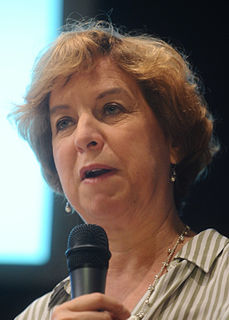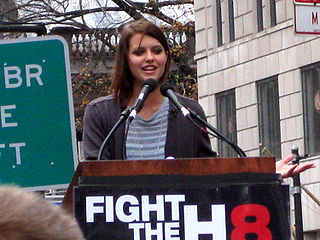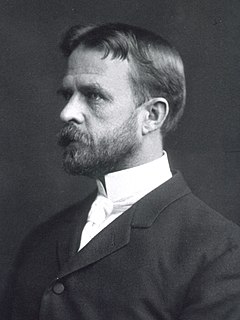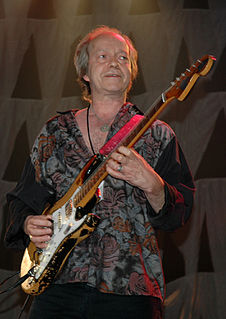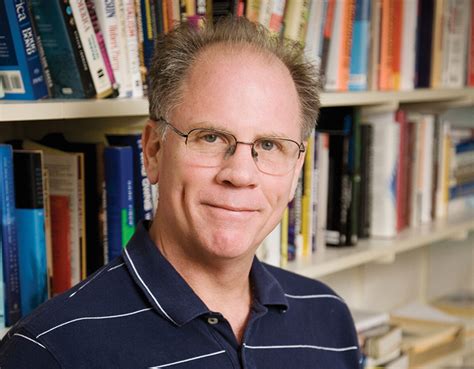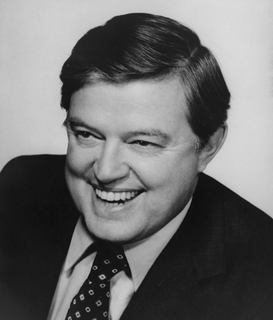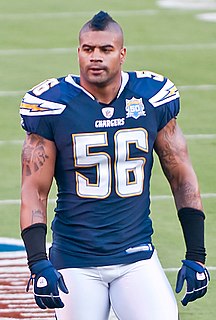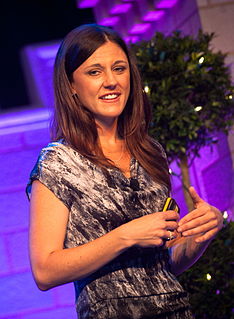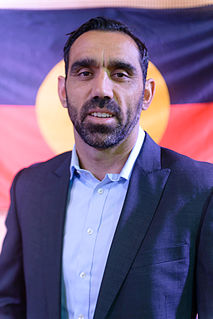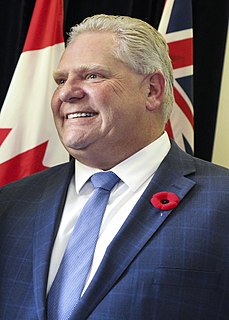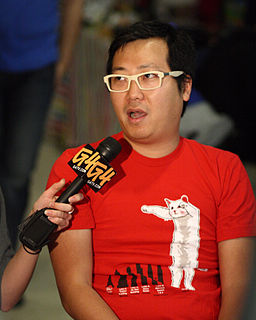Top 1200 Print Media Quotes & Sayings - Page 3
Explore popular Print Media quotes.
Last updated on April 20, 2025.
I start with no preconceived idea - discovery excites me to focus - then rediscovery through the lens - final form of presentation seen on ground glass, the finished print previsioned completely in every detail of texture, movement, proportion, before exposure - the shutter's release automatically and finally fixes my conception, allowing no after manipulation - the ultimate end, the print, is but a duplication of all that I saw and felt through my camera.
Is there some reason why the quality of people going into the parliament is not as high? I don't know the complete answer, but I think - in fact, I'm sure - that part of it is the increasing intrusiveness of the media - the general media and social media - into the private lives of politicians and their families.
My standards are higher than they used to be, I think. They don't necessarily have to make sense, but I certainly work on them a lot harder now -- partly because I do them on the computer, and I print them out and fix them, and print them and fix them over and over again, whereas in the early days I used to just scratch down a few things on a piece of paper.
Trump has his own audience, which is in many cases as big as or bigger than the media covering him. He doesn't need the media. He enjoys them being around. He likes toying with them. He likes being provocative around them. To him, the media is a plaything. To the Republican and Democrat establishments, the media holds coequal position in the entire power structure of the ruling class.
Distributed print is arguably our biggest challenge as a machinery supplier, as more publishers find efficiencies in transferring print production to remote printers and supersites. But our signature Goss flexibility and adaptability allow us to meet that challenge head-on with relevant technologies, services and expertise that continue to provide customers with an edge.
The worst was I had little control in terms of smoothing out my questions and making myself look good the way I could in print. All the ums and uhs and rambling and apologies and hyenalike laughter at something that really isn't funny. You know when an artist will crack a joke, and you're like, "That's so hilarious," like, the fawning laughter that you can at least cut when it's print? It's just all out there, and it's really humiliating.
The truth is, truly passionate media creators don't get into the media business to make huge gains from spectacular unicorn exits. When it happens, we certainly all cheer (and perhaps secretly hope it happens to us). But the fact is, we make media because we don't know what else to do with ourselves. It's how we're wired, so to speak.
Let me say, it's - what a commentary it is on American media that you have to go to Russian television in order to get covered as a candidate in this election. It's pretty outrageous. And our media could solve that in a heartbeat if they actually opened it up, you know, but they don't. So I think that's more commentary on the crisis in our media.
I was on television a couple of years ago and the reporter asked me, "How does it feel being on mainstream media? It's not often poets get on mainstream media." I said, "Well I think you're the dominant media, the dominant culture, but you're not the mainstream media. The mainstream media is still the high culture of intellectuals: writers, readers, editors, librarians, professors, artists, art critics, poets, novelists, and people who think. They are the mainstream culture, even though you may be the dominant culture."
In examining the CIA's past and present use of the U.S. media, the Committee finds two reasons for concern. The first is the potential, inherent in covert media operations, for manipulating or incidentally misleading the American public. The second is the damage to the credibility and independence of a free press which may be caused by covert relationships with the U.S. journalists and media organizations.
A lot of the things I've done for charity and the money I've given will never be talked about in the media. I'd rather it be that way, because I don't do it for the media. Of course, having celebrities and media there at events helps bring attention to the need, but seeing the looks on peoples' faces when they receive help is why I really do it.
Among all the complaints you hear these days about the crimes of the media, it seems to me the critics miss the big one. It is that especially TV, but also we of the print press, tend to reduce mess and complexity and ambiguity to a simple story line that doesn't reflect reality so much as it distorts it. ... What bothers me about the journalistic tendency to reduce unmanageable reality to self-contained, movielike little dramas is not just that we falsify when we do this. It is also that we really miss the good story.
I've talked about how the future of journalism will be a hybrid future where traditional media players embrace the ways of new media (including transparency, interactivity, and immediacy) and new media companies adopt the best practices of old media (including fairness, accuracy, and high-impact investigative journalism).
Now, the one thing that's clear is that we need nonprofit, noncommercial media - not just broadcasting - more than ever in the United States. We don't need a purely nonprofit, noncommercial system, but we need a significant nonprofit, noncommercial system. Advertising-run media, profit-driven media, simply is not acceptable as the entirety of our media system. There's no defense for it.
The media is not about the arena of ideas. The media is not about persuading. The media is about overcoming the will of the people. The media has joined forces with the Democrat Party, members of the Democrat Party, and the extreme radical left in the United States to advance the extreme radical leftist agenda.
Advances in the technology of communications have proved an unambiguous threat to totalitarian regimes: Fax machines enable dissidents to bypass state-controlled print media; direct-dial telephone makes it difficult for a state to control interpersonal voice communication; and satellite broadcasting makes it possible for information-hungry residents of many closed societies to bypass state-controlled television channels.
In a print interview, as you may or may not know, they [editors] can do whatever they want. And they do. This is why most people are more hesitant to do print, because they can change it, and they do change it. They even change things that are in quotation marks, which is a pet peeve of mine. I've said to numerous reporters, "Would you read me back my direct quotes?" And they always say no. They always say that's against the policy.
The Singapore Media Festival brings together the most important Film and TV events in Singapore under one umbrella. With media convergence, I foresee that the SMF will encompass even more content formats in future, and will keep Singapore on the cutting-edge of media development. I am confident the SMF will be a signature media event for Singapore and the world for many years to come.
The food shortages and high prices have certainly sparked the world media's attention, particularly since they're coming in such diverse places, being everywhere from Haiti, to Senegal, to Bangladesh, to Egypt - a range of countries. That sort of caught the media off guard, and serves the media's prurient interests insofar as "it bleeds, and so it leads".
ISIS uses traditional media platforms as well as widespread social media campaigns to propagate its ideology. With the broad distribution of social media, terrorists can spot, assess, recruit, and radicalize vulnerable persons of all ages in the U.S. either to travel to foreign lands or to conduct an attack on the homeland.
What I do is whatever it takes, it takes. Sometimes you see a scene right away and a take looks great so you might print that and you might print a couple more and take elements of all three. It just depends. You're looking for the highlights. You're looking for the best elements of the scene, but preferably you'd like to have one good take that would go all the way through.
I think, ironically, the media's been good for America, but Trump's been good for the media. He's revitalized The New York Times and CNN - it's never had so much integrity and so much power ever, and that's because being attacked by constant authoritarians and fascists with an agenda has actually got them to sharpen up and to get back to base principles about what the media should actually be. It's also that the circulation boost has removed this horrible, incipient commercial pressure that compromises media.
The print magazine and print journalism industry is obviously in a great deal of trouble, and one of the things that happened when this business started to give way to the Internet and to broadcast television is that a lot of organizations started cutting specifically investigative journalism and they also started cutting fact-checkers.
I have an office in my house, with a comfy red print reading chair and a soft cream-colored desk. After I walk Winston the Wonder dog and have my breakfast, I head to my office. Every single day. Sometimes, when I'm working on revisions, I print off my manuscript and go to a coffee shop to work. But mostly you can find me in my office.
We did a campaign here with New York Times. We had a great ad: "Today in America, someone will kill an elephant for a bracelet." We became sensitized in our society. Now there are four or five billion people in Asia who need to get this message. We need to use social media, print magazines, celebrities - anything we can to share this message. It's not cool, it's not okay. You are destroying beautiful animals. You are robbing a continent of its wealth. And you are hurting a lot of innocent people.
We have found that where science has progressed the farthest, the mind has but regained from nature that which the mind has put into nature. We have found a strange foot-print on the shores of the unknown. We have devised profound theories, one after another, to account for its origin. At last, we have succeeded in reconstructing the creature that made the foot-print. And Lo! it is our own.
Communication is paramount, and what medium or what format you utilize should be a non-issue. In some respects, that has created a barrier for new media, especially web new media, because often times maybe the media itself comes before the concept, before the ideas, and ends up navigating or dictating the outcome.
Print works! It works as a business proposition - our print readers [of the Mother Jones] not only provide revenue in the form of subs and ads, but they are a core part of our donor community; 10 percent give us a donation on top of their subscription; that's about the same rate as NPR gets from its listeners.
Print is still responsible for a significant portion of the revenues that, you know, pay for the work of the newsroom. But, you know, digital is very important. And part of the thrill of having this job now is I get to lead us through what is both a thrilling and very challenging transition from a print world to a digital world.
I don't think I'm an angry person. I think I'm a person who's angry. I'm angry at the Bush administration; I'm angry at the right wing media. And by that I don't mean the media is right wing. I mean, there is a part of the media that's not the mainstream media. That's Fox, that is 'The Wall Street Journal' editorial page.





